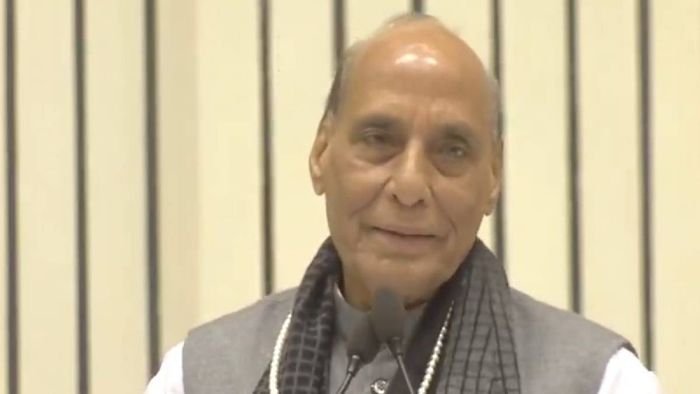"Who knows, tomorrow Sindh may return to India again": Defence Minister Rajnath Singh
Defence Minister Rajnath Singh on Sunday, November 23 invoked a remark by former Deputy Prime Minister Lal Krishna Advani, suggesting that while geopolitical boundaries may shift over time, the civilisational bond between India and Sindh remains deeply rooted. Speaking at the Sindhi Samaj Sammelan in the national capital, Singh said, “Borders can change. Who knows, tomorrow Sindh may return to India again.”

- Nov 23, 2025,
- Updated Nov 23, 2025, 7:57 PM IST
Defence Minister Rajnath Singh on Sunday, November 23 invoked a remark by former Deputy Prime Minister Lal Krishna Advani, suggesting that while geopolitical boundaries may shift over time, the civilisational bond between India and Sindh remains deeply rooted. Speaking at the Sindhi Samaj Sammelan in the national capital, Singh said, “Borders can change. Who knows, tomorrow Sindh may return to India again.”
Sindh, the historical homeland of the Sindhi community and the heartland of the ancient Indus Valley Civilisation, became part of Pakistan following the Partition of 1947. Singh emphasised that despite being geographically separated, Sindh’s cultural and spiritual connection with India continues to endure.
Quoting Advani, Singh said, “Today, the land of Sindh may not be a part of India, but civilisationally, Sindh will always remain Indian. Advani once wrote that Sindhi Hindus of his generation have never fully accepted the separation of Sindh from India.”
Highlighting the region’s cultural significance, the Defence Minister said many Muslims in Sindh, too, regarded the waters of the Indus River as sacred—comparing its sanctity to the Aab-e-Zamzam of Mecca.
“Our people of Sindh, who hold the Indus sacred, will always be our own,” Singh added, reiterating the emotional and cultural ties binding the Sindhi diaspora to India.